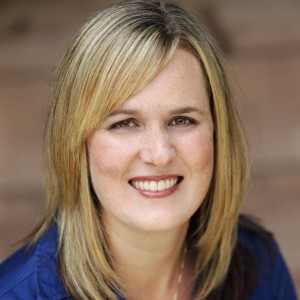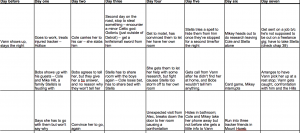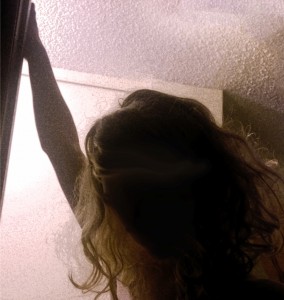Pacific NW Blog Hop!
29 Monday Sep 2014
Written by jillcorddry in Blog Hop/Tour, Book updates, Cool sites for writers
The wickedly funny Tiffany Pitts invited me to participate in a blog hop for writers in the Pacific Northwest. And while I feel she’s being a tad generous allowing this (northern) California girl to play along, I DID live in Seattle for 12 years, and that has to count for something, right?
I’m trying not to be too excited, but this is my first blog tour/hop!!! For those of you who aren’t familiar with the concept, basically, I get to answer a few questions about my writing, and then invite a few other PNW friends to do the same next Monday. Without any further stalling, here we go …
What am I working on? The bulk of my writing time – which is sadly very limited thanks to Double Trouble (twin toddler boys who call me mama) – is spent editing my adult urban fantasy novel, Almost Like Magic. It received some interest from three agents at the Pacific Northwest Writer’s Association conference in July, but I want it to be as polished as possible before sending it off to them. So I hired an editor and am working (slowly) through her notes. I also use some of that free time to shop my short stories. **I’m going to pause here and give an unsolicited shout out to Duotrope.com** My short stories range from fantasy (both lighter and darker fare) to horror and some science fiction. You can find them for free online at Bewildering Stories and Lakeside Circus, and in the Demonic Possession anthology on Amazon.com.
I am also writing a novel online with two other friends, Ron Walters and August Niehaus, called Return to Elgin. We’re on a short hiatus as we edit other novels, but the adventure will pick up again in December. Hey, that totally gives you time to get caught up on the story!
How does my work differ from others in its genre? Like much urban fantasy, there are monsters and creatures that co-exist in modern society. But I think there are two main things that set Almost Like Magic apart from other stories. One, NO VAMPIRES OR WEREWOLVES! There, I said it. One of the agents I pitched at PNWA actually said, “Awesome!” when I told her this tidbit. Instead, I spent hours reading urban legends, mythology from around the world, and scores of monster encyclopedias in search of new and interesting, and little used, creatures to populate my world. And then finding the best city or town to set them in. One friend in particular (you know who you are), teases me for my love of research – yet often tasks me with helping him … hmmmm ….
And second, many UF stories feature a strong female protagonist, one who’s out there kicking ass and taking names. And I love those stories. I do. But a random thought popped to mind once, shortly after I’d sketched out a few paragraphs of a new idea … who takes care of the fighters? And so my main character was created: A doctor and a mystical healer. Someone who takes the best of all worlds to treat and tend those who fight the monsters. She’s still strong. She can still kick ass. But in ALM, instead of seeking out the fight, the fight comes to her, whether or not she wants to play along.
Why do I write what I do? Oh, hell. I don’t know.
Probably because this is what I read. I actually surprised myself when I started on my first novel. I have always read a lot of YA, so I kind of thought that’s what I would end up writing. That or true science fiction, another love of mine. And yet, at the time I started writing again, in 2009, I was reading a lot of fantasy and my creative energies focused on that, I guess. The first novel I wrote is fairly light fantasy, almost literary, but ALM is true Urban/Contemporary Fantasy … with maybe a touch of Magical Realism. I surprised myself again about three years when I started a short story project with my friend August (two writers, 50 short stories, 52 weeks!), and many of the stories took a decidedly dark, horrorific turn. I didn’t know I had it in me! But it was a challenging exercise, as well as a fun departure.
How does my writing process work? Save the easy one for last why don’t you?! Sorry, I’m wordy, and this ain’t gonna be short …
It’s always a little different from story to story, but the one aspect that seems to hold true across every story is that I do not write from start to finish. Instead I jump all over the place. Occasionally it’s a challenge to remember how my character was feeling at that moment, or to dive back into their motivations, but that’s easier for me to deal with than staring at a glaring blank page for days. For ALM the first scene that popped into mind ended up about a third of the way into the story. I was finishing up a different story and didn’t have time to work on a new idea, but it wouldn’t go away. At first it was nothing more than a very rough sketch with three characters: she, him, and his brother. I knew they were on a road trip, and that “she” did not like them. That’s how they stayed for almost three pages as I pecked out a line or two. Finally, names came to me, and I realized I had the beginnings of a story.
Once I get about 20,000 words into a new story, I need to map it out, even if that map is nothing more than faint lines winding all over the place. I’ve been told that my particular method of plotting is unique, but hey, it works for me. I use a spreadsheet. I like being able to see the story both vertically and horizontally. This is part of the timeline for the first draft of ALM. It’s changed dramatically, so I’m not giving too much away!
Even after I’ve got at least the main points figured out, I still have no idea how I’m getting from point-to-point … and that’s the fun part. (I’ll get into how my characters “help” with that in a few lines). And some days, I’m just not feeling certain scenes or characters, which is why I’m grateful I can skip around; not all writers can.
As for my characters, yes, they talk to me. There. I said it. I hear voices. One in particular liked to wake me at 3am with all kinds of interesting insights about who he is and what was going on. We had to have a chat about his suckyass timing. I told him I’d take away all his lady friends if he didn’t shut the hell up in the middle of the night. He did.
Music is also important to me while I write and edit, but you can read about that here. Finishing a novel is hard. Like, really, really hard. And I don’t mean just the first draft. I mean seeing it all the way to the end. The end that means you’re confident enough to put it out there for agents or publishers to judge. While I think the concept of self-publishing is fantastic, and I have a novel in progress to do just that, for ALM I want the mother load: the agent; the big publisher; the feeling that I’m an AUTHOR!
This post ended up being a lot longer than I intended … so I’ll leave you with the Pacific Northwest Writers I tagged to participate. Please check out their posts next Monday (October 6). Don’t worry, I’ll remind you!
 I am a graduate of the U.S. Air Force Academy who served as a C-17 pilot in both Afghanistan and Iraq after 2001. Now, I’m happily settled in the Pacific Northwest with my family. My writing has been labeled “Too Christian” for mainstream markets and “Too Worldly/Liberal” for Christian markets, so I guess that puts me somewhere between sinner and saint. All I can say is that I’m not perfect because I am a Christian, I am a Christian because I am not perfect, and that’s the only place my heart knows to write from.
I am a graduate of the U.S. Air Force Academy who served as a C-17 pilot in both Afghanistan and Iraq after 2001. Now, I’m happily settled in the Pacific Northwest with my family. My writing has been labeled “Too Christian” for mainstream markets and “Too Worldly/Liberal” for Christian markets, so I guess that puts me somewhere between sinner and saint. All I can say is that I’m not perfect because I am a Christian, I am a Christian because I am not perfect, and that’s the only place my heart knows to write from.
Bastille Winters hails from the dark and stormy wilds of the Pacific Northwest. Her hobbies are writing science fiction erotica books from the shelter of her home in the woods, amateur pole dancing, and remaining mysterious.


